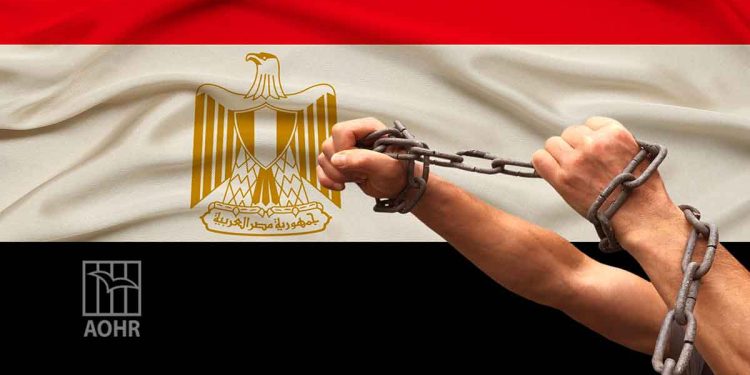UN experts have expressed their concern over an Egyptian court’s ruling against three human rights defenders, in the “Egyptian Coordination case”, including human rights lawyer and former member of the Egyptian Human Rights Council Hoda Abdel Moneim, human rights defender Aisha El Al-Shater, and human rights lawyer Mohamed Abu Huraira.
The UN sent the Egyptian authorities a letter to the experts confirming that Abdel Moneim, Al-Shater and Abu Huraira were subjected to several violations since their arrest, starting with enforced disappearance and physical ill-treatment amounting to torture, solitary confinement, denial of visits and deliberate medical neglect, and being tried in a trial that lacked international standard of a fair trial.
The UN experts pointed out that the Supreme State Security Prosecution charged the three with affiliating to a terrorist organisation, in addition to receiving funds from foreign entities.
On March 5, 2023, the Supreme State Security Court issued a verdict against the three in Case No. 1552/2018, and sentenced Hoda Abdel Moneim to five years in prison, while acquitting her of receiving foreign funds for a terrorist group, while Al-Shater was sentenced to 10 years and Abu Huraira to 15 years in prison.
The ruling also included the inclusion of the three on the list of terrorists for a period of five years after the end of their prison term, as well as having a travel ban and asset freeze, in addition to being subjected to police supervision.
The three defendants were interrogated without their lawyers who were not allowed to speak to them during the court sessions, and they could only see them from behind a glass barrier. Family members were not allowed to attend the sessions as well.
The experts said that the prosecution and the court did not investigate the defendants’ allegations of enforced disappearance and torture, and the court also relied on records from the National Security Agency without questioning witnesses, and did not allow the defendants to speak in any of the hearings. They noted that the rulings issued by the Supreme State Security Court cannot be appealed, and the President of the Republic is the only person who has the authority to ratify, annul or mitigate sentences, or to order a retrial.
They expressed serious concern that the allegations of the three detainees represent the ongoing systematic use of Egypt’s criminal law and counter-terrorism frameworks to punish the legitimate act of defending human rights through criminalisation and arbitrary detention of human rights defenders.
They reiterated their concerns about the ongoing misuse of counter-terrorism and national security legislation to criminalise legitimate activities by human rights defenders and other citizens, including lawyers, journalists and civil society actors in the country.
In response to the letter, the Egyptian authorities requested an extension of the time to respond, while not providing any legal responses on the reasons for arresting the three human rights defenders, bringing them to an exceptional trial, or placing them on the terrorism list.
It should be noted that the Egyptian court’s decision against Abdel Moneim, Al-Shater and Abu Huraira has been widely condemned by national and international human rights organisations, activists, and jurists.






























